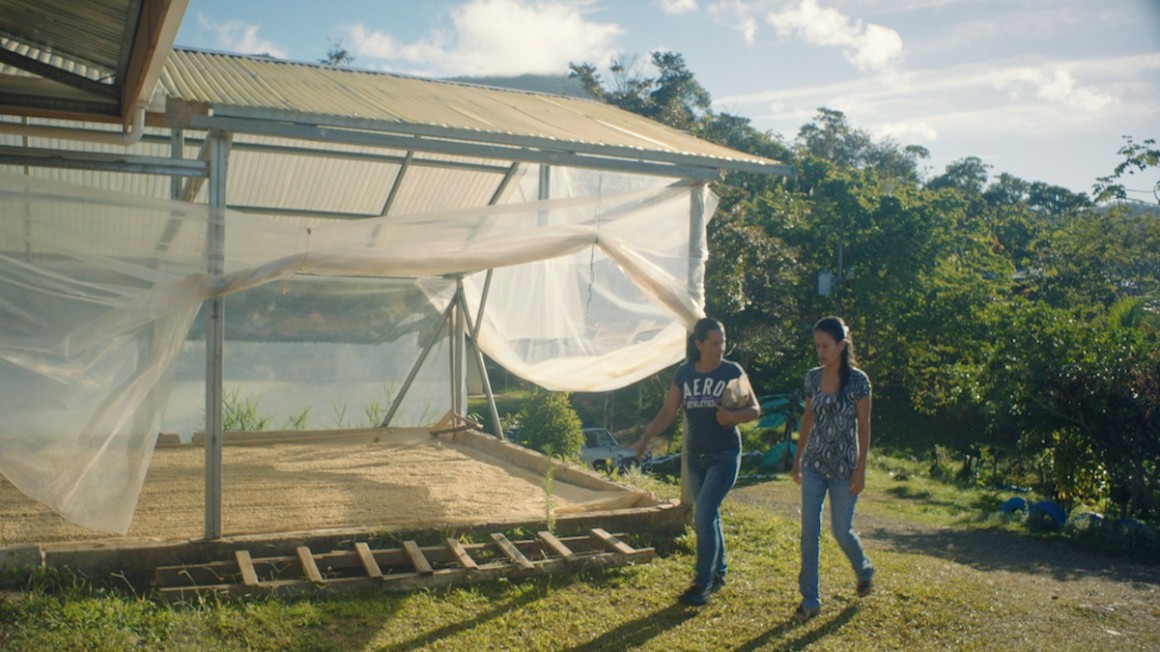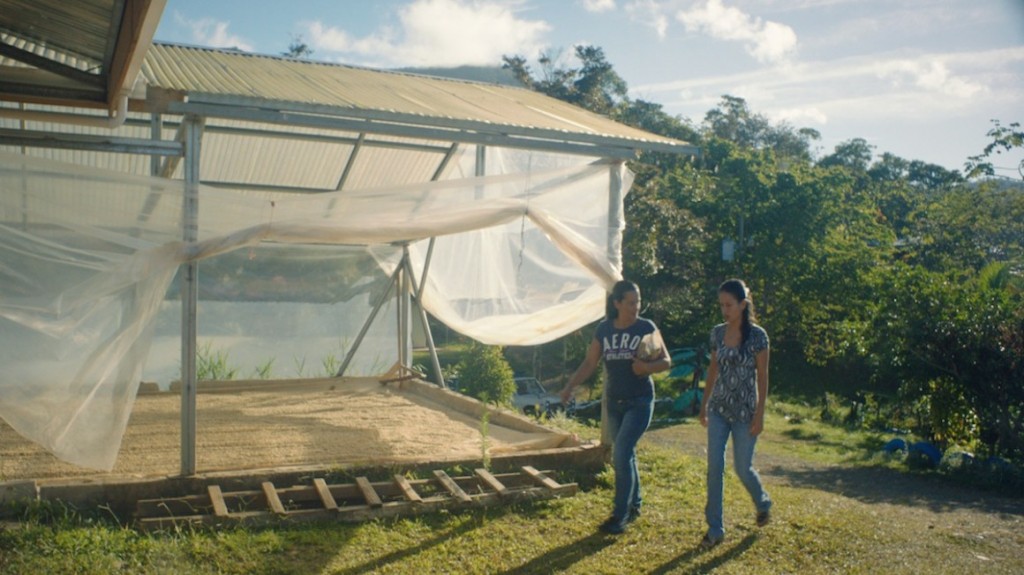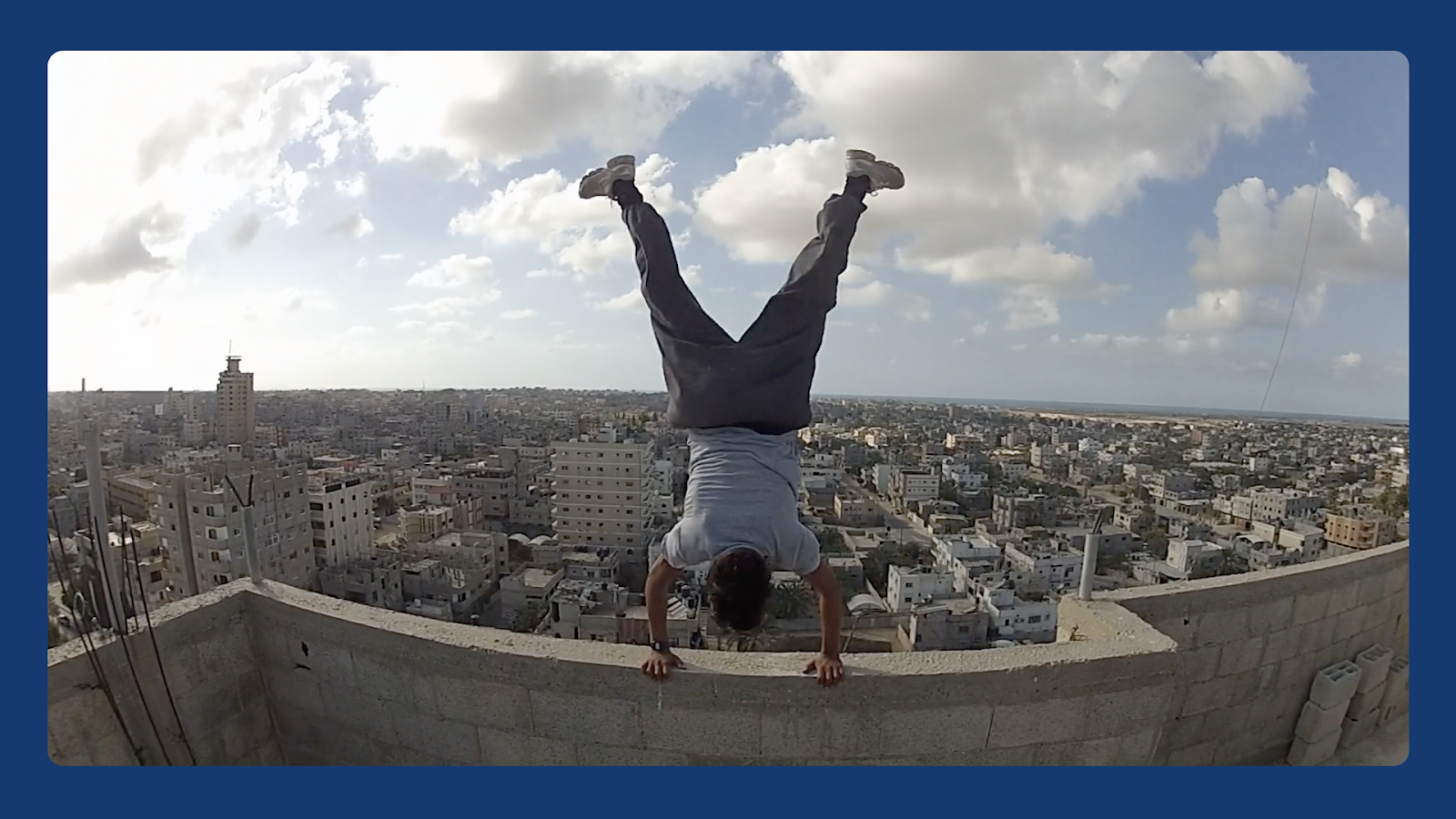A Small Section of the World Comes to DOC NYC


Written by Laura Dattaro
In 1997, a small group of women living in the mountains of Costa Rica began producing coffee to offset the economic flight of their husbands and sons to the city. Their organization, La Asociacion de Mujeres Organizadas de Biolley (ASOMOBI), was the first micro-mill in Costa Rica. Today, there are more than 100.
But it wasn’t just their business model that made the women unique. “In 1980, there were almost no women in coffee,” Grace Mena, owner of Cafe Grace Mena and the exporter who brought ASOMOBI’s coffee to the international market, says in A Small Section of the World.
In alternating shots of verdant Costa Rican landscapes and small administrative meetings, the documentary tells the intertwined stories of ASOMOBI’s rise to global market success and the potential for coffee to raise women and entire communities out of poverty. In many countries where coffee is grown, women do much of the labor, while men take the product to market, often spending much of the profits — as much as 60 percent — on personal interests, such as bar tabs and mopeds fit for one. But when given the money, director Leslie Chilcott said in a panel discussion following the film, women generally invest about 90 percent of the profits back into their families and the local community. “With coffee, it’s a direct route out of poverty or borderline poverty for many women,” Chilcott said.
In ASOMOBI’s small section of the world, that route is clear: One of the founders’ daughters is flown to Italy to present her master’s thesis about ASOMOBI’s progress and potential, while at home the profits are used to maintain and upgrade the local school and church. When the mill inevitably attracts tourists, the women start a lodge to house and feed them on their visits, a side business that eventually brings more profits to the organization.
The film also briefly touches on issues facing coffee growers as whole, including the tension between consumers who desire fair-trade coffee, which requires expensive certification and practices, and the coffee-growers who aren’t adequately compensated for such pricey demands.
Chilcott isn’t a coffee drinker herself, but she was drawn to the story after GreenLight Media, a company based out of Los Angeles, suggested it to her, along with free reign to tell the narrative as she saw it. Asked what she hope people might take away from her film, Chilcott responded, “When we all have our cup of coffee in the morning, I hope that we think about how many hands did it take to make that cup of coffee, and how many of those hands are women’s hands?”
Mena, who’s traveled around the world tasting coffees and training women to enter the business world, shared the sentiment, adding that she saw other women emulating what ASOMOBI had done in their own communities. “I would like to see other countries doing what ASOMOBI is doing in Costa Rica,” Mena said during the panel discussion. If A Small Section of the World is any indication, such a development isn’t far behind.
For more about A Small Section of the World, visit the film page on the DOC NYC website
Laura Dattaro is a freelance reporter in New York City focusing on science and the environment. Follow her on Twitter @ldattaro

